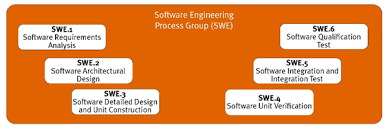Exploring the Role of a Google Software Engineer in Driving Innovation
Google Software Engineer: Building the Future with Innovation
Google, one of the world’s leading technology companies, is known for its innovative products and services that shape the way we interact with information. Behind these groundbreaking technologies are Google software engineers, the masterminds who design and develop the software that powers Google’s ecosystem.
What Does a Google Software Engineer Do?
A Google software engineer plays a crucial role in creating and maintaining software systems that drive various Google products, such as Search, Maps, Gmail, and Android. These engineers are responsible for writing code, designing algorithms, testing software components, and optimizing performance to ensure a seamless user experience.
Skills and Qualifications
To excel as a Google software engineer, one must possess strong programming skills in languages like Java, C++, Python, or JavaScript. Problem-solving abilities, critical thinking, and attention to detail are essential traits for tackling complex technical challenges.
Culture of Innovation
Google fosters a culture of innovation that empowers software engineers to think creatively and push boundaries. Engineers have access to cutting-edge tools and resources to experiment with new ideas and develop groundbreaking solutions that impact millions of users worldwide.
Career Growth Opportunities
Working as a Google software engineer opens up exciting career growth opportunities. Engineers have the chance to work on diverse projects, collaborate with top talent in the industry, and contribute to open-source initiatives that drive technological advancements.
Conclusion
A career as a Google software engineer offers a unique opportunity to be at the forefront of innovation and shape the future of technology. With a focus on creativity, collaboration, and continuous learning, Google empowers its engineers to build products that make a difference in people’s lives.
9 Compelling Reasons to Pursue a Career as a Google Software Engineer
- Opportunity to work on cutting-edge technologies
- Access to top talent in the tech industry
- Chance to impact millions of users worldwide
- Innovative and collaborative work environment
- Exciting career growth and development opportunities
- Competitive compensation and benefits package
- Engagement in open-source initiatives
- Diverse range of projects to work on
- Prestigious reputation of working for Google
Challenges Faced by Google Software Engineers: Navigating Intense Workloads and High Expectations
- Intense Workload
- Competitive Environment
- Limited Work-Life Balance
- Constant Learning Curve
- High Expectations
Opportunity to work on cutting-edge technologies
Google software engineers at Google have the exciting opportunity to work on cutting-edge technologies that drive innovation and shape the future of technology. From artificial intelligence and machine learning to cloud computing and quantum computing, engineers have access to the latest tools and resources to explore new frontiers in technology. This exposure not only allows engineers to stay at the forefront of technological advancements but also empowers them to contribute to groundbreaking projects that have a global impact. The dynamic environment at Google encourages continuous learning and experimentation, making it an ideal place for software engineers seeking to push boundaries and drive innovation in the tech industry.
Access to top talent in the tech industry
Google software engineers enjoy the significant advantage of having access to top talent in the tech industry. Working alongside some of the brightest minds in technology allows engineers to collaborate, learn, and be inspired by innovative ideas and approaches. This exposure not only fosters professional growth but also creates a dynamic environment where knowledge sharing and mentorship thrive, ultimately leading to the development of cutting-edge solutions that drive Google’s success in the ever-evolving tech landscape.
Chance to impact millions of users worldwide
Google software engineers have the incredible opportunity to impact millions of users worldwide through their work. By developing innovative software solutions that power Google’s products and services, these engineers play a vital role in shaping the digital experiences of a global audience. Whether it’s improving search algorithms, enhancing user interfaces, or optimizing performance, Google software engineers have the chance to make a meaningful difference in the lives of countless individuals who rely on Google’s technology every day.
Innovative and collaborative work environment
Google software engineers at Google benefit from an innovative and collaborative work environment that fuels creativity and fosters teamwork. By encouraging open communication, idea-sharing, and cross-functional collaboration, Google empowers its engineers to explore new solutions, push boundaries, and drive innovation. This dynamic setting not only cultivates a culture of continuous learning but also enables engineers to leverage diverse perspectives and expertise to tackle complex challenges effectively. The innovative and collaborative work environment at Google inspires software engineers to think outside the box, experiment with cutting-edge technologies, and collectively contribute to shaping the future of technology.
Exciting career growth and development opportunities
Google software engineers at Google are presented with exciting career growth and development opportunities that allow them to continuously expand their skills and expertise. With access to diverse projects, collaboration with top industry talent, and involvement in open-source initiatives, Google software engineers have the chance to advance their careers and make significant contributions to cutting-edge technological advancements. This environment of continuous learning and innovation ensures that Google software engineers are constantly challenged and empowered to reach new heights in their professional development.
Competitive compensation and benefits package
Google software engineers enjoy a competitive compensation and benefits package that reflects the company’s commitment to attracting and retaining top talent. In addition to a generous salary, Google offers comprehensive health insurance, retirement plans, stock options, and various perks such as free meals, on-site wellness programs, and opportunities for professional development. This robust benefits package not only rewards engineers for their hard work but also ensures their overall well-being and satisfaction in their roles at Google.
Engagement in open-source initiatives
Google software engineers benefit from the opportunity to engage in open-source initiatives, allowing them to contribute to the global tech community and drive innovation collaboratively. By participating in open-source projects, Google engineers can share their expertise, learn from others, and make a meaningful impact beyond the confines of their day-to-day work. This involvement not only enhances their skills and knowledge but also reinforces Google’s commitment to fostering a culture of transparency, collaboration, and giving back to the broader software development community.
Diverse range of projects to work on
Google software engineers at Google have the opportunity to work on a diverse range of projects, allowing them to explore various technologies and domains. This diversity not only keeps their work engaging and challenging but also provides valuable opportunities for learning and growth. By collaborating on different projects, Google software engineers can expand their skill set, gain new perspectives, and contribute to innovative solutions that have a meaningful impact on users worldwide.
Prestigious reputation of working for Google
The prestigious reputation of working for Google as a software engineer is a testament to the company’s status as a global technology leader. Being part of Google’s esteemed engineering team not only offers unparalleled opportunities for professional growth and development but also grants access to cutting-edge projects and resources that shape the future of technology. The brand recognition and innovative culture at Google attract top talent in the industry, creating a dynamic environment where software engineers can thrive and make a meaningful impact on a global scale.
Intense Workload
Google software engineers encounter a significant challenge in the form of an intense workload. The pressure of tight deadlines and high-stakes projects can result in long working hours and a risk of burnout. The demanding nature of the job can lead to stress and exhaustion, impacting the well-being and work-life balance of Google software engineers. Managing workload expectations and prioritizing self-care are crucial aspects for navigating the demanding environment of software engineering at Google.
Competitive Environment
In the realm of Google software engineering, one notable con is the competitive environment that permeates the tech industry. Google software engineers often find themselves in a high-pressure setting where the expectation to consistently surpass their colleagues can be daunting. The intense competition within the company may create a sense of stress and urgency, potentially leading to burnout or feelings of inadequacy among engineers striving to excel in this demanding environment.
Limited Work-Life Balance
Limited Work-Life Balance: Google software engineers often face challenges in achieving a healthy work-life balance due to the fast-paced and demanding nature of the tech industry. The high expectations for productivity and innovation can lead to long working hours and intense workloads, making it difficult for engineers to disconnect from their professional responsibilities and prioritize personal well-being. Striking a harmonious balance between work demands and personal life commitments can be a constant struggle for Google software engineers, impacting their overall quality of life and mental well-being.
Constant Learning Curve
Adapting to a constant learning curve is a significant challenge for Google software engineers. The fast-paced evolution of technology demands that engineers regularly update their skills and knowledge to keep pace with emerging trends and advancements. This continuous learning process can be demanding, requiring engineers to stay proactive in their professional development and remain adaptable to new technologies and methodologies.
High Expectations
One significant drawback for Google software engineers is the high expectations set by the company. Google demands top-notch performance and continuous innovation from its engineers, creating a challenging and sometimes stressful work environment. The pressure to meet and exceed these high standards can lead to burnout and feelings of inadequacy among software engineers striving to maintain Google’s reputation for excellence in technology development.










